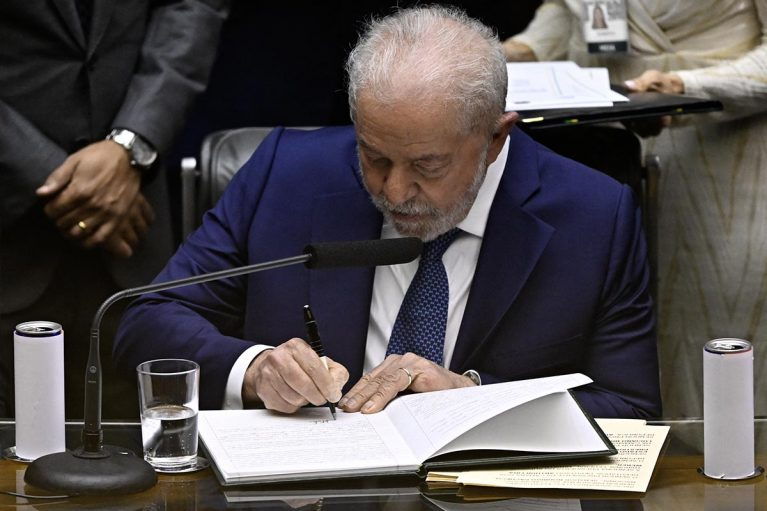The recently inaugurated Brazilian President Lula da Silva issued a decree in the first hours of his administration reintroducing the controversial “Bolsa Família” social plan, which had been eliminated by Bolsonaro due to its high level of corruption, and replaced instead by “Auxílio Brazil“.
Bolsonaro’s plan had established social assistance at R$600 per month, a higher value than Lula da Silva had given in the past, but this money would go directly into the hands of those in need, instead of going through social and picket movements and such as transfers during the PT governments.
Now Lula da Silva has made Bolsonaro’s increases permanent but has reintroduced the “Bolsa Familia” structure. Assisted families will receive an amount of up to R$600 per month, and an additional R$150 will be added for each child up to 6 years of age. But this money will be distributed among different social movements and unions, which will then distribute the allocations in the neighborhoods.

The political maneuver will also imply a massive increase in public spending by 2023, taking advantage of a decision by Congress to exclude the social plan from the fiscal rule that establishes a nominal ceiling for federal State expenditures.
Congress empowered the new president to increase the spending ceiling for an amount equivalent to US$28 billion in 2023 (R$145 billion). Although the congressmen rejected Lula da Silva’s original proposal that sought an increase of R$198 billion and raise the spending ceiling until 2026, this measure will once again put Brazil in fiscal red.
But Lula da Silva’s economic team did not announce a single compensatory measure on the tax revenue side, quite the opposite. Through another controversial decree, Lula da Silva canceled all the privatizations provided for by the previous administration, and in this way all those resources provided for by them in the 2023 Budget were also annulled.
The privatizations meant a great help for the balance of the deficit with a “cash base” criterion in the last months of the Bolsonaro administration. This factor will be completely nullified in Lula da Silva’s administration, and the Brazilian government will no longer have access to these resources.
On the other hand, Lula da Silva’s decrees tightened the regulatory norms for mining activity in the Amazon region and this provision also implies a fiscal cost for the State from the point of view of income, because royalties and taxes will no longer be received internal associated with the activity.
The economic team’s proposals include a tax reform to reduce “regressive taxes”, but it does not explain how the brutal increase in public spending will be compensated so as not to incur a dangerous fiscal imbalance.
The new Finance Minister Fernando Haddad, in charge of public finances, assured that the administration will not accept the primary deficit programmed at R$220 billion in 2023, but “will work actively to reduce it even more.” But again, all the measures announced to date aim to increase the deficit and there were no further indications of restrictive tax measures.
With information from La Derecha Diario

